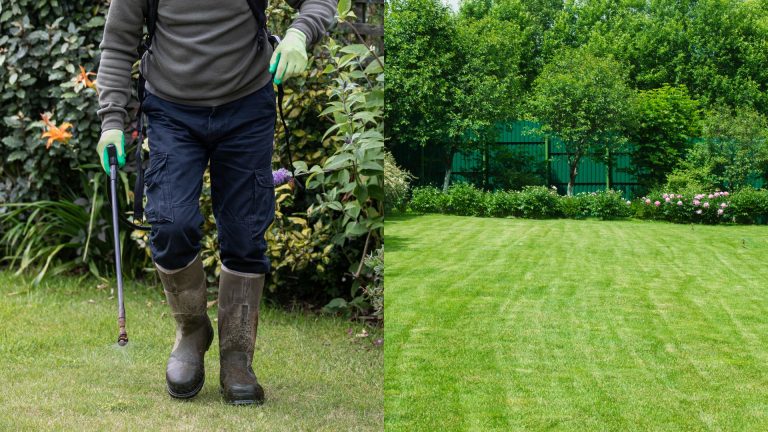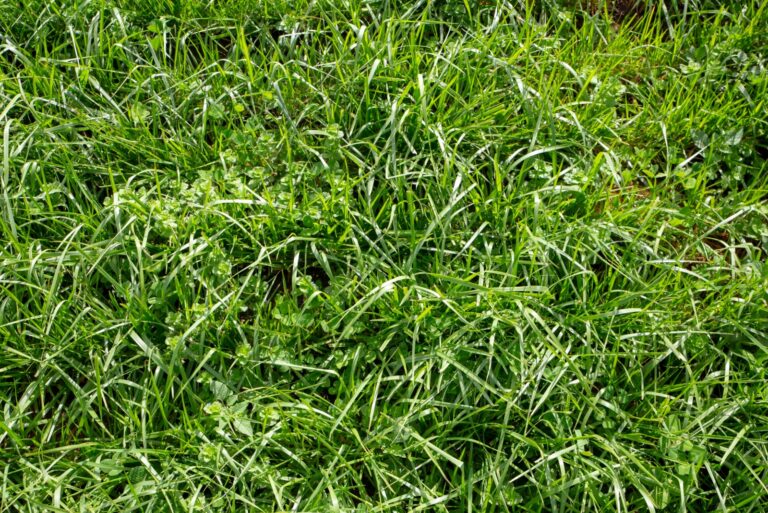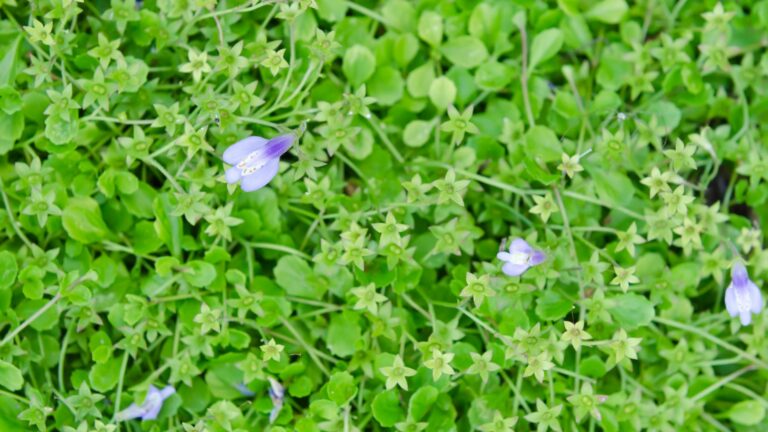The Battle Bermuda vs Centipede Finally Has A Clear Winner
Both centipede and bermuda grass are warm-weather varieties that cannot handle cold temperatures.
This makes them perfect for hot climates where they can thrive and bring out the best of your front yard.
But how can you decide between the two? To help you work out which one to choose, we’ll discuss the main differences between bermuda vs centipede grass, talk a bit about their similarities, and present their benefits and drawbacks.
Finally, we’ll resolve the dilemma once and for all, and reveal our clear winner between the two, which will depend on many factors.
Now, let’s get started!
Differences Between Bermuda And Centipede Grass
Both centipede and bermuda grass are popular Florida grasses, and either would be perfect for your lawn.
However, they do have their differences, such as their uses, appearance, needs, place of origin, and resistance to pests and weeds.
We’ll discuss these factors in more detail in the following sections so that you can have a better insight into these species.
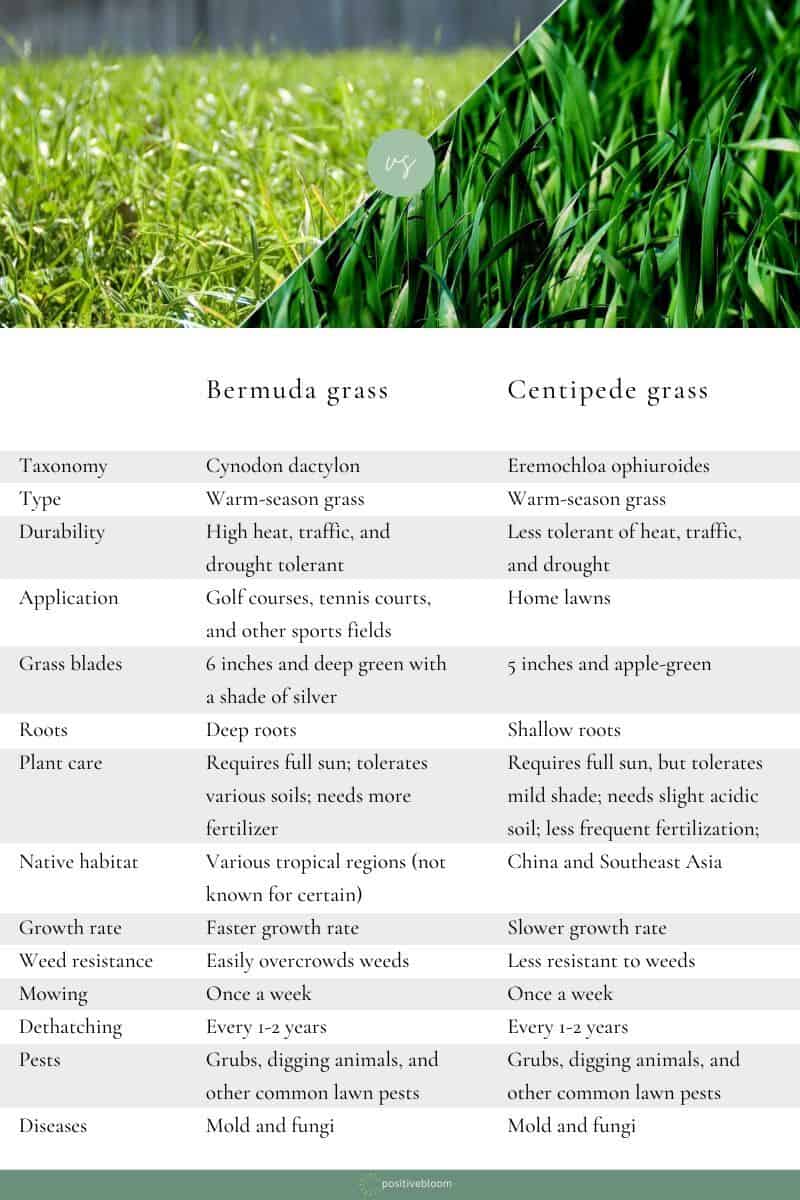
Application And Durability
Centipede and bermuda grass can be invasive species in certain areas, but that’s not the case for every location.
If these types of grasses aren’t on the list of invasive plants for your region, you can use either of them.
But what for?
Well, bermuda grass is more durable, so you can use it for areas that have higher foot traffic, such as golf courses, tennis courts, and other sports fields that require a high-quality lawn.
Centipede grass, on the other hand, isn’t as durable as bermuda grass, and we usually find it used for regular lawns.
And unlike bermuda grass, this type grows slowly and cannot recover fast enough from heavy traffic. It will leave ugly patches, which only get worse if you have certain pests such as ants.
But let’s make one thing clear; ants don’t eat grass, but grass seeds, which will make overseeding much more difficult.
Grass Blades
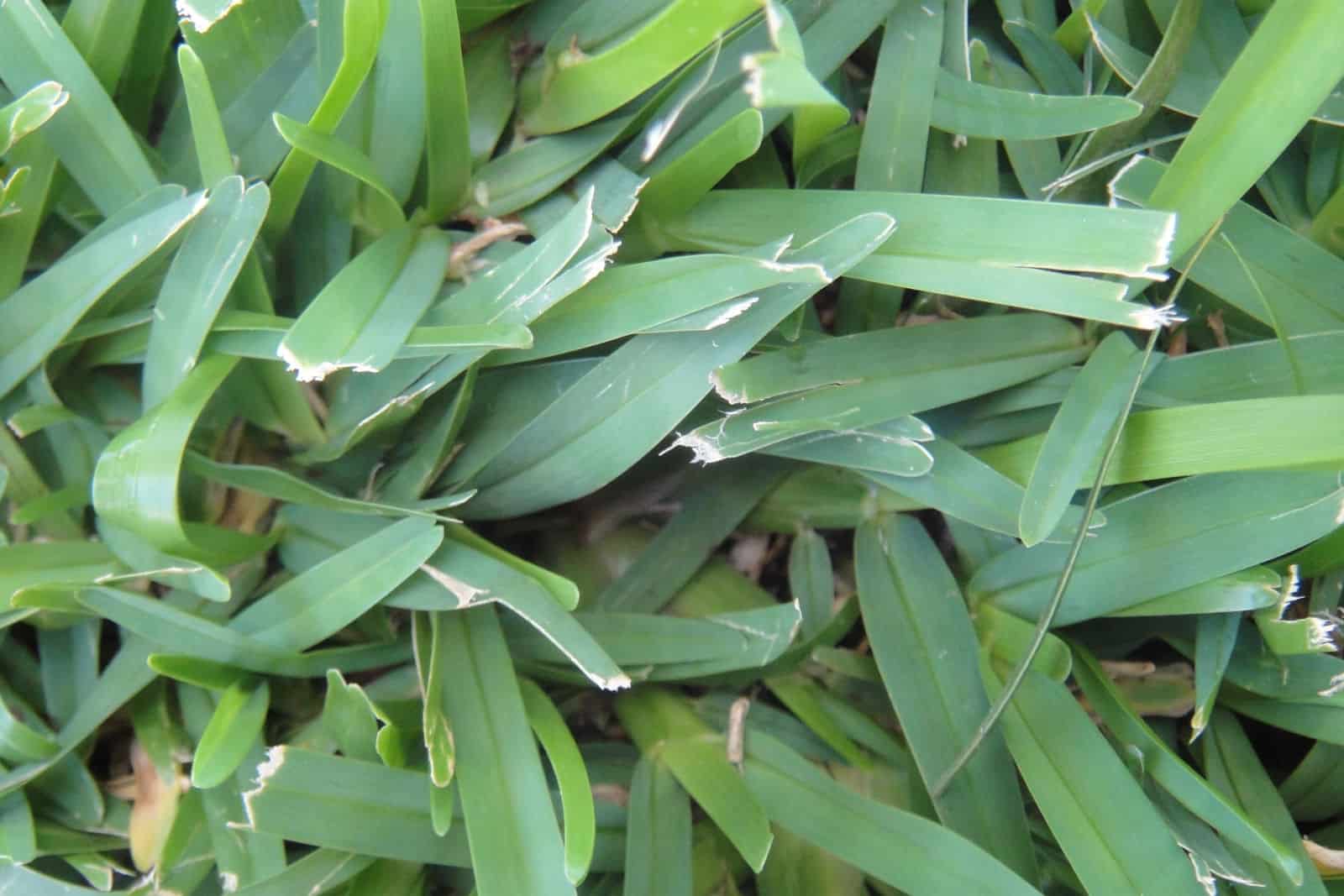
Another difference between bermuda and centipede grass is the appearance of their leaves.
Centipede grass usually has 5-inch long leaves that are light-to-medium green and not as smooth as those of bermuda grass.
The blades of the bermuda grass are taller (up to 6 inches), and are that signature grass-green color with just a tinge of silver shade.
Roots
Centipede grass has a shallow root system, which puts this variety in danger of getting hurt. And since its roots aren’t extensive, the plant will have a much slower recovery time.
Contrary to this, bermuda grass has much deeper roots that can extend up to 6 inches into the ground. This makes this variety less sensitive to higher temperatures and underwatering, and allows it to bounce back much faster than centipede grass.
Plant Care
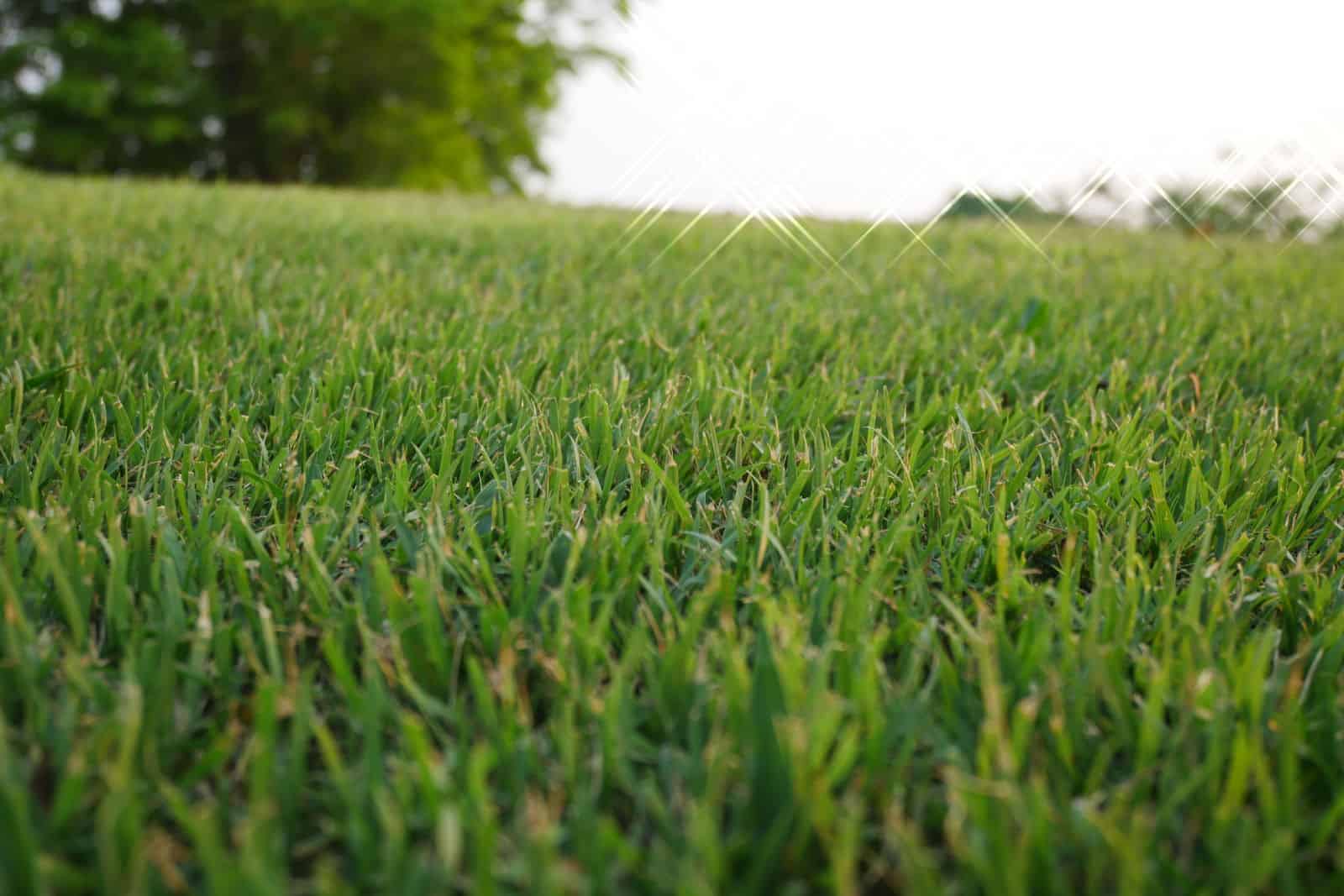
Bermuda grass requires at least four hours of direct light each day (but 6+ hours is ideal) and it can handle heat and drought quite well. On the other hand, it isn’t tolerant of cold weather.
It is quite demanding, and you’ll need to feed it regularly in order to keep it healthy and flourishing.
Bermuda grass doesn’t require any special soil type as long as it has good drainage, can withstand high traffic, and is hardy in zones 7-11.
Centipede grass is less demanding than bermuda in terms of fertilization, but it is also less heat and drought tolerant.
It needs a slightly acidic growing medium to develop, cannot handle high traffic, and is hardy in zones 7-10.
Just like bermuda grass, it thrives in full sun, but it can tolerate shade a bit better than the bermuda (although, deep shade will be the death of both varieties).
Finally, weeds can appear in both types, but you can treat them with herbicides. However, it is important to recognize dallisgrass and crabgrass (some of the most common weeds), so that you can apply the correct solution and deal with the issue properly.
Taxonomy
One of the most obvious differences between these grass types is their names.
Bermuda grass is known as “Cynodon dactylon” in the botanical world, and centipede grass goes by the scientific name “Eremochloa ophiuroides”.
On the other hand, both plants belong to the same family, Poaceae (grasses).
Native habitat

The next difference in bermuda vs centipede grass is their place of origin.
Centipede grass comes from Southeast Asia and China, and it was brought to the USA in 1916.
The exact origin of bermuda grass is unknown. Many scientists have said it first appeared in tropical Africa, but Australia, Eurasia, the Bengal region, and Indo-Malaysia are all probable places of origin.
Growth Rate
Bermuda grass has a faster growth rate than centipede grass because it has more extensive roots.
However, this means that it also needs more nutrients, which makes it more demanding.
Weed Resistance
The final difference between centipede and bermuda grass is their resistance to weeds.
Bermuda grass is known to be more resistant to weeds, which means it will easily overtake undesirable grasses. And if your weed issue gets too severe, you can always find some of the best weed killers for bermuda grass to deal with it.
Centipede grass requires a bit more care when it comes to weeds because it can get easily overgrown by them.
The reason for these differences is the speed with which these plants grow; centipede grass grows more slowly than bermuda grass, and cannot overtake the weeds before they do the same to it.
Similarities Between Centipede And Bermuda Grass
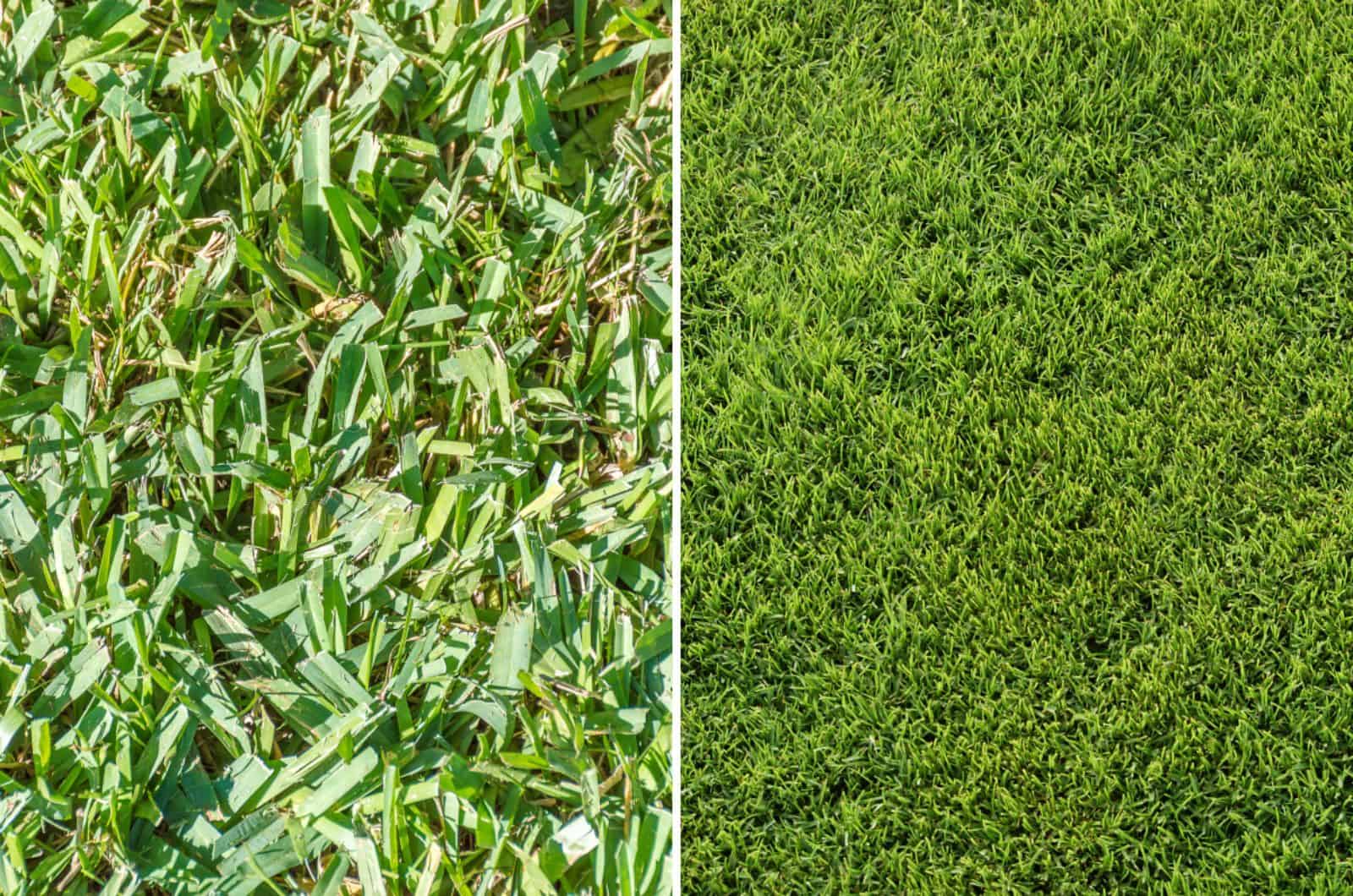
There are a couple of differences between these grasses, but there are also some similarities.
For instance, both of these varieties are warm-season grasses, have the same mowing requirements, and get attacked by similar pests.
We’ll discuss all these elements in the following section so that you can up your game when it comes to lawn care.
Type
The differences between bermuda and centipede help us decide which one to get for our lawn, but the fact that they are both warm-weather grasses makes that choice easier.
This means that if we live in USDA zones 7-10, we don’t have to choose between them. We can get either one if our only requirement is their tolerance of warm temperatures.
Mowing & Dethatching
There is another similarity between centipede and bermuda grass; their mowing requirements.
Both grasses need to be cut approximately once a week during the hot weather, and less frequently when the temperatures are lower than 70°F.
Of course, it all depends on your preferences, and if you love to keep your lawn short, you might need to mow the bermuda grass more frequently because it has a faster growth rate.
Of course, you shouldn’t cut wet grass as it may be uneven, attract fungi, and even destroy the base.
Furthermore, since both centipede and bermuda aren’t particularly tall, you don’t have to dethatch them very frequently. For instance, if the thatch is about ½ inch tall, you can dethatch it every other year. But if it’s 1-1.5 inches tall, you should do it once a year.
The best time to do this is in spring because dethatching dormant centipede or bermuda grasses can destroy them.
Pest & Diseases
Another similarity between these varieties is the fact that they get attacked by similar pests and diseases.
The most common of them are digging animals, grubs in lawns, and other common insects that love living in lawns. When it comes to diseases, the usual ones are mold and fungi.
And since bermuda and centipede grass are equally likely to get infested by these pests, this category doesn’t affect your decision in any way.
Bermuda Grass Pros And Cons
[table id=650 /]
Centipede Grass Pros And Cons
[table id=651 /]
The Winner Of Bermuda vs Centipede

It is common to compare Bermudagrass to other varieties, which is why it’s not surprising that so many people want to know the differences between bermuda and zoysia grass, centipede grass, etc.
It is only natural that we want to know if there’s a clear winner in such an important decision.
Well, when it comes to bermuda and centipede grass, our money goes to the bermuda grass! This type is perfect for high traffic lawns (which is especially important if you love walking on it bearfoot) and can tolerate heat and drought much better than the centipede grass.
It has a lush green color that goes well with everything, grows faster, and easily crowds out weeds.
Bermuda grass is suitable for various soil types, including slightly acidic, mildly alkaline, and even salty substrates, so you won’t have to worry about that when starting your lawn.
It does require more maintenance in terms of fertilization than the centipede grass, and though it can turn brown and go dormant after the first frost, it will quickly recover from it.
However, all this doesn’t mean that centipede grass is a bad choice. It is less tolerant of heat, drought, and traffic than the bermuda grass, and also has shallow roots and a slow growth rate, but it is suitable for home lawns, especially if you want a low-maintenance one.
It is also more tolerant of mild shade, so it’s perfect for less sunny homes (actually, in this case, it’s superior to bermuda grass).
Final Thoughts
There are several differences between bermuda vs centipede grass, including their durability and uses, maintenance, native habitat, growth rate, and even their appearance.
Generally speaking, bermuda grass is more tolerant of heat, drought, high traffic, and various soil types.
It has deeper roots and grows faster, so it overtakes weeds easily, but it does require more maintenance in terms of feeding and mowing (especially if you love to keep your lawn short).
On the other hand, centipede grass can tolerate shade much better than the bermuda, it isn’t truly dormant in winter (so it stays green), and requires much less maintenance.
Since most people love walking on their grass and/or live in a hot region, they opt for the bermuda grass, but you need to consider everything and make an informed decision.
If your region gets plenty of rainfall, your yard is in mild shade, and you dread the thought of mowing and fertilizing, then the centipede grass is your way to go.
Hopefully, this can help you choose.
Until next time!

